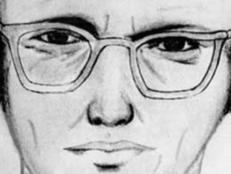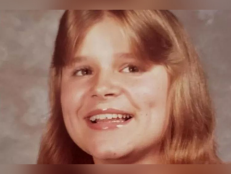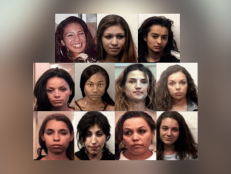Author Elon Green Discusses His Book About The Last Call Killer
The Last Call Killer's murders of at least four men in the 1990s went unsolved for decades.
![Author Elon Green [credit: Natalie Sparaccio]](http://investigationdiscovery.sndimg.com/content/dam/images/investigationdiscovery/crimefeed/legacy/2021/04/natalie-sparaccio-elon-green-040921.png.rend.hgtvcom.616.462.suffix/1618002372564.png)
Author Elon Green [credit: Natalie Sparaccio]
This interview was originally featured on Celadon.com.
Although there are many well-known American serial killers, at least one has been relatively forgotten — until now. The Last Call Killer murdered at least four men in the 1990s, and his crimes went unsolved for decades. Author Elon Green’s new true crime book Last Call sheds light on this previously unknown serial killer and his victims, whose lives were cut short far too soon.
Celadon: The Last Call Killer murdered at least four men in the 1990s, yet his crimes — and more importantly, his victims — remain largely forgotten. Why do you think that is?
Elon Green: There’s likely more than one answer. Initially, I think, the crimes — and, thus, the victims — didn’t receive deserved attention because the victims were perceived to be gay. I suspect there hasn’t been a book on this, until now, because the story is quite complicated —multijurisdictional, spanning decades. But also, without indulging in spoilers, aspects of the investigation were almost certainly drowned out by national events.
Celadon: How did you come across this case? And why did you feel it was important to tell this story?
Green: I found the story while flipping through a back issue of, I believe, The Advocate. It was about an unsolved case, and every detail was astounding. It was important to tell the story — or, anyway, what eventually became the story — for micro and macro reasons. The micro reason is the lives of the victims were interesting and heartbreaking, and I felt they deserved to be known.
The macro reason is this particular version of history had never really been written. The backdrop of Last Call is the queer bar scene in Manhattan in the early 1990s. Until now, it’s been written about primarily through the lens of AIDS. I wanted to untangle that, to give readers a sense of what being in those bars was really like.
Lastly, the book is about queer life in different cities and eras, and in some cases, this is a history (the section about Youngstown, Ohio, for example) I had to assemble from the ground up.
Celadon: In many true crime books, the narrative focuses on the killer and his crimes. But in Last Call, you place an emphasis on the lives of four of his victims. Why did you choose to structure the book this way?
Green: I’ve always had an aversion to the “blood ’n’ guts” nature of most true crime. Blessedly, I think the genre is shifting away from it, particularly in the work of Sarah Weinman, Pamela Colloff, and David Grann. But my choice to structure the book around their lives was selfish: Their lives were fascinating. Who, given a chance, wouldn’t write about Youngstown in the fifties, Boston in the sixties, and so on? These men passed through extraordinary eras and places, and often crossed paths with fascinating people. Attempting to retrace that was not a difficult choice.
Celadon: How did the setting of Last Call — the Manhattan nightclub scene, during the height of the AIDS epidemic — play a role in your storytelling?
Green: The setting was a gift, basically. Detectives’ offices and municipal courtrooms are not really interesting. But queer bars and clubs of the early 1990s were extraordinary and exciting. I could allow the reader to see the characters move through this space and time.
Celadon: An impressive investigative work, Last Call is the culmination of interviewing more than 40 sources and unearthing forgotten and previously unpublished documents over the course of several years. While researching the book, what details surprised or shocked you the most?
Green: I was surprised to learn that, within my lifetime, the assault of queer New Yorkers was functionally legal. The police didn’t care, and the courts were intellectually unprepared to defend the assaults. That made the backdrop to the murders all the more horrific.
Celadon: This is your first true crime book. Do you plan to write any others in the future?
Green: It’s impossible to say yes or no. True crime hasn’t, until now, been my chosen genre. The short answer is that, should I find some sliver of history that’s been overlooked, and it happens to dovetail with a crime, I may just write about it.









